How to Eat Healthy on a Budget (15 Tips)
Eating healthy on a budget can be a challenge because nutritious food can be expensive. However, just because you have a tight budget doesn’t mean you have to settle for food that isn’t healthy. You just have to be a bit smarter with your shopping.
As a frugal person, I’ve had to learn quickly how to eat healthy on a budget myself and I’ve discovered that it’s actually not that hard once you have a system in place. Today, I’m going to share my top tips with you so you can eat for less as well.
15 Tips to Eating Healthy on a Budget
1. Buy in bulk
This tip is a no-brainer and it’s quite obvious for the reason that foods for sale in bulk are often cheaper than those that are sold separately. You can look for packs of steak, chicken or beef available in larger bags and just freeze what you won’t be using.
A super helpful tip is once you have bought the meat from the store, come home and place each piece in separate Ziploc bags. That way you won’t have to defrost the whole thing when you need to cook one steak or spend forever trying to pry the meat apart!
2. The same applies to frozen vegetables.
Buying frozen vegetables can be a super easy way to get that part of your diet in! Also, you can buy certain vegetables and freeze those too! They don’t always have to be the prepackaged, already frozen kind!
But before shopping, check for space in the freezer! Buying in bulk won’t make sense if you can’t store the items and they all end up unthawing and going bad!
3. Prepare your food at home
Not only is this healthier than eating out, but it also will save you money! In fact, you can feed a small family for the same price that you would pay for one or two people when you eat out.
And not to mention, not only will your wallet thank you, but your body will too! By preparing your meals, you’ll know exactly what goes into your food versus restaurant foods, which can be smothered with salt and sugar that could ruin your diet and might put your health at risk.
Additionally, you may want to cook a week’s amount of food on the weekends so that you can save time and avoid the temptation of buying takeout food when you’re busy. Sunday’s are my day for food prep! Pick a day and prepare so eating healthy can be less of a hassle!
4. Check for the best prices
You can search online and look for coupons or deals or ask about a loyalty card in the grocery store for added points and savings when you shop. When an item goes on sale, stock up on it! Make the goal to only buy things on sale because about every 4-6 weeks, each essential item will go on sale!
Additionally, you can look for sale items in the seafood and meat section, as these are the most expensive ingredients in your menus.
5. Buy in season produce
Check your menu plan and look for recipes calling for out season ingredients. If you spot these items, change your recipe or perhaps look for alternatives for those ingredients.
After all, buying in-season fruits and vegetables is a more cost-effective way of shopping due to their lower prices – not mentioning their freshness!
6. Go back to the basics and prepare your food
Convenience foods cost more than freshly made ones. For example, if you find yourself often buying pre-cut, frozen vegetables or readymade dinners, you may want to change that and prepare your own instead. I know it will take a little extra time, but it is WORTH the savings!
7. Plan your meals
Don’t go to the grocery store without a clear plan in mind. What are the meals you’re planning to prepare for the week? Are you looking to roast meat in your pellet grill and smoker? Do you want to make some stir-fries?
Check which ingredients you already have in the fridge and then make a list of ingredients that you need to pick up. Then, go to the store to get exactly what is on your list and only what’s on your list!
8. Skip the junk food
You should cut out the junk food from your grocery list if you want to eat healthy on a budget. After all, buying all those cookies, processed foods, and frozen dinners can easily add up and take a huge chunk of your week’s budget. Buy whole foods instead.
After all, you should always spend more on healthy, higher quality food than on junk foods, which are nutrient-empty.
9. Buy alternatives
If you’re dieting and exercising to lose weight, and protein from meat sources is often included in your grocery list, you might swap it out for beans, eggs, or legumes, which are also loaded with protein, but easier on the pocket.
10. Prepare and cook in a large batch and then separate them in containers before freezing
Do you have a favorite recipe? You may want to double the amount you cook, divide it, and then store it in the fridge. When you want to serve it again any time of the week, you can simply reheat it, instead of cooking another batch.
In this case, you can also save for not spending on takeout meals during busy days when you simply don’t have the time to cook. Now, that’s savings!
11. Stick to your grocery list
Once you already have it, stick to it! Buying other items, which aren’t included on the list, is a sure fire way to blow your budget because it could lead to unintended purchases.
TIP: Stick in the perimeter to buy whole foods and stay away from the middle portion of the store, where unhealthy, frozen and processed foods are commonly placed.
12. Avoid shopping when hungry
This is one of the most practical tips to follow if you want to eat healthy on a budget. When you’re hungry, you are more likely to buy something that is not on your grocery list!
[What happens here is that hungry shoppers often crave for food that isn’t ideal for his budget (and health). Before going to the store, make sure to eat a snack – perhaps yogurt, fruit or another healthy alternative.]
13. Buy unprocessed foods
Choose unprocessed foods because they are much cheaper than their processed counterparts are.
Whole grains, such as oats and brown rice, are also cheaper than processed cereals and they can yield more servings/package.
14. Use leftovers
Leftovers can be used in other recipes or stored in portion sizes, and then reheated later. Also, these leftovers are perfect for making burritos, salads, and stir-fries, and they work perfectly if you’re on a budget.
Another great way to use them is to simply put them in a container and take it to work with you for lunch the next day! Or even send it to school with your kids. Make one home-cooked meal last for 2 or 3 more meals!
15. Choose generic brands
Most products often have their generic counterparts – and buying these can save you money while ensuring that they have the same ingredients as their branded counterparts do.
Take note, though, read and check the label to ensure you’re not buying a lesser quality product than you should.
Eating Healthy on a Budget IS Possible
By following these quick and easy tips on eating healthy on a budget, you can manage your finances better while getting the most out of food. After all, healthy eating does not need to be expensive when you’re making wise choices and sticking to your grocery list.
Use these tips to help you with your budget and healthy food choices today!
Now, share your secrets! What has helped to stay on your budget while trying to eat healthily?
Huge thank you to our guest blogger, Olivia Rose!
Olivia Rose here! As a food blogger at My King Cook, I know how important vegetables are for health. But being a mother, I also know that it’s hard to convince your children to eat their veggies. However, my food blogging experiences led me to discover some easy and delicious vegetable recipes. This is why I like to share my pleasant experiences with vegetables with my readers.
Comments
Leave a Reply
Report a Problem
Please select the problem you are facing with this deal:
- Price Increased
- Price Decreased
- No longer available
- Expired
- Link doesn't work
- Suggestion
- Compliment
- Other
Add more details:
Thank you for your feedback. We really appreciate it.
Enter your email address if you would like to receive a follow up.
Please Try Again
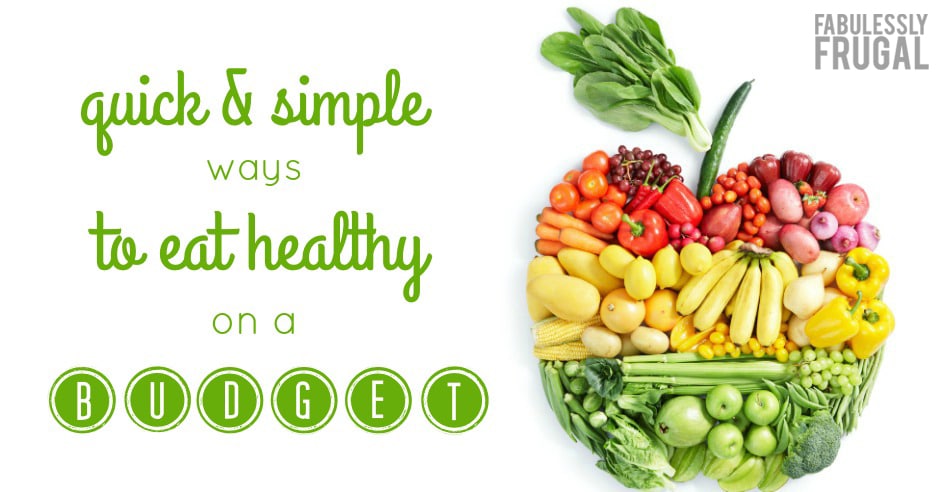





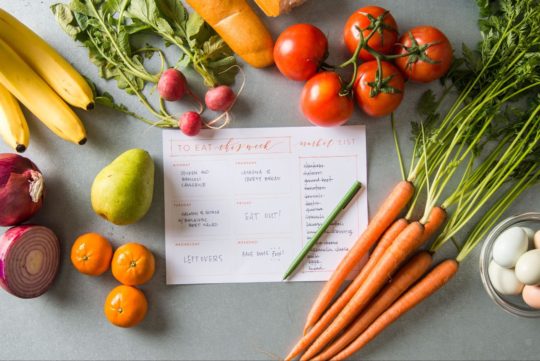
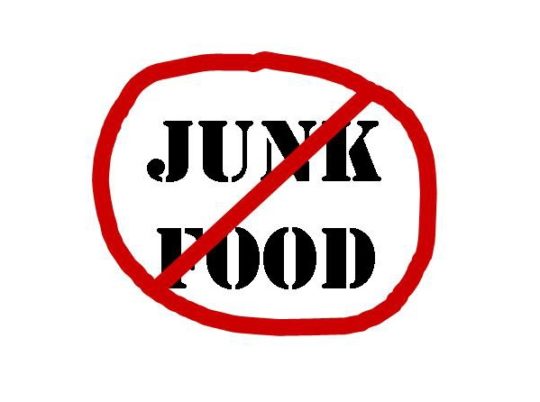
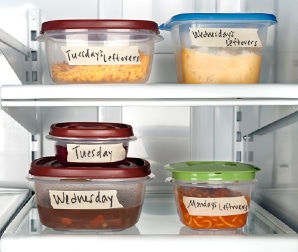
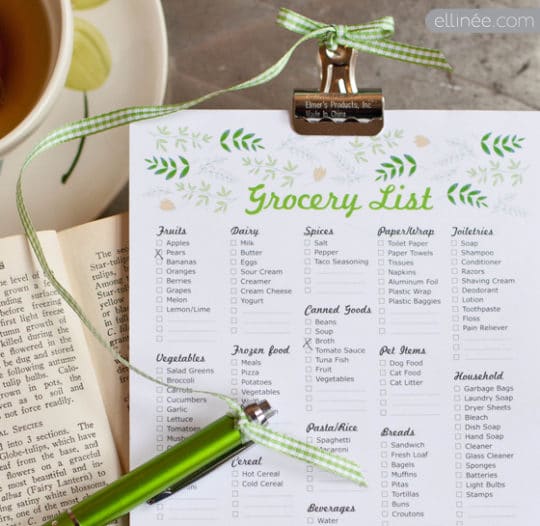



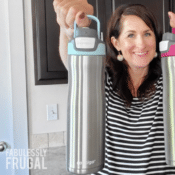








I freeze veggies that will go bad or make double dinner & freeze the other portion.
Also, I meal plan so that I can mix in say 1 or 2 expensive food items during the week, with a bunch of inexpensive things.
And…always plan to make an “egg” type dinner in my meal plan. They’re so inexpensive!
Great tips Michele! Thanks for sharing! 🙂